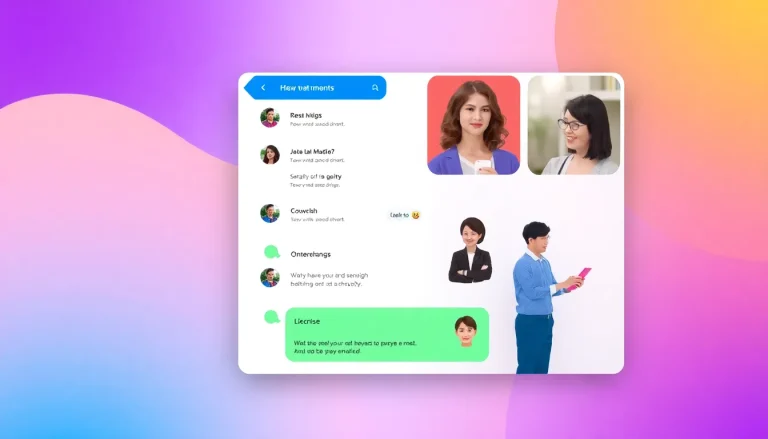
Understanding AI Marketing Agents
In an era where technology drives innovation in every aspect of business, marketing has not remained untouched. Enter AI marketing agents, transformative tools that leverage artificial intelligence to enhance marketing strategies. These agents are designed to automate and optimize various marketing tasks, providing companies with the capability to operate more efficiently and effectively.
Definition and Roles of AI Marketing Agents
AI marketing agents are sophisticated software tools that automate specific marketing tasks using artificial intelligence technology. These agents function with a degree of autonomy but still require human oversight to ensure alignment with business goals and strategies. The main roles of AI marketing agents can include:
- Task Automation: Automating repetitive marketing tasks such as data analysis and content generation to save time and reduce human error.
- Customer Insights: Analyzing customer data to derive insights that inform targeted marketing strategies.
- Campaign Management: Optimizing marketing campaigns in real-time based on gathered data, enhancing effectiveness while reducing costs.
- Personalization: Delivering personalized experiences to customers, thereby increasing engagement and satisfaction.
How AI Marketing Agents Work
The operation of AI marketing agents generally revolves around three key components: data collection, machine learning, and predictive analytics. Initially, these agents gather vast amounts of data from various sources, such as social media, CRM systems, and web analytics.
Machine learning algorithms are then employed to analyze this data to identify patterns and trends. By applying predictive analytics, AI marketing agents forecast future behaviors and outcomes, which helps businesses to craft better-targeted marketing strategies.
Benefits of Using AI in Marketing
Implementing AI marketing agents offers numerous advantages:
- Improved Efficiency: With the automation of mundane tasks, marketing teams can focus on strategic initiatives.
- Data-Driven Decisions: Enhanced data analysis capabilities allow companies to base their strategies on solid evidence rather than instinct.
- Enhanced Personalization: AI technology enables the delivery of personalized marketing messages, resulting in higher engagement rates.
- Increased ROI: By optimizing campaigns through real-time data adjustments, businesses can see improved return on investment.
Key Features of Effective AI Marketing Agents
Automation of Marketing Tasks
One of the standout features of effective AI marketing agents is their ability to automate various marketing tasks. This includes:
- Email Marketing: Automation allows for sending out emails at optimal times and personalizing content for recipients based on their behavior.
- Social Media Management: Scheduling posts, analyzing engagement metrics, and optimizing campaigns without manual intervention.
- Ad Management: Automatically analyzing and adjusting ad spend to maximize results.
Data Analysis and Insights Generation
AI marketing agents excel in gathering and analyzing large datasets. The insights generated can be pivotal for developing marketing strategies. Such analysis often extends to:
- Consumer Behavior: Understanding how customers interact with various marketing channels.
- Market Trends: Identifying shifts in market trends to adapt strategies swiftly.
- Campaign Metrics: Evaluating the performance of marketing campaigns through various metrics such as engagement rates, conversion rates, and ROI.
Personalization in Customer Engagement
Personalization is no longer a luxury; it’s an expectation for modern consumers. AI marketing agents utilize algorithms to tailor marketing messages to individual consumer preferences and behaviors, enhancing engagement and fostering loyalty. Techniques involved include:
- Targeted Recommendations: Suggesting products based on previous purchases or browsing behavior.
- Dynamic Content: Automatically changing webpage or email content to match the user profile.
- Behavior Tracking: Monitoring user behavior in real-time to send timely and relevant communications.
Top AI Marketing Agents in the Market
Comparative Analysis of Leading Tools
The field of AI marketing agents is crowded with a multitude of tools and platforms. Some of the leading AI marketing agents currently making waves include:
- Synthesia: Known for its video content creation capabilities using AI to personalize marketing videos.
- Relevance AI: Specializes in data analysis and personalized content delivery.
- ChatGPT: Provides conversational agents that engage with customers in a personalized manner.
A comparative analysis of these tools reveals differing strengths, such as Synthesia’s focus on visual content versus Relevance AI’s prowess in backend analytics.
Use Cases and Success Stories
Several brands have successfully integrated AI marketing agents into their strategies, achieving remarkable results:
- Netflix: Utilizes AI to personalize viewing recommendations, leading to a significant increase in user retention.
- Amazon: Uses AI to drive product recommendations, which has been pivotal in boosting their sales and customer satisfaction.
- H&M: Implements AI agents for inventory management and marketing insights, enhancing operational efficiency.
Choosing the Right AI Marketing Agent for Your Needs
Selecting the appropriate AI marketing agent requires careful consideration. Companies should assess:
- Business Goals: Understand what you want to achieve—brand awareness, lead generation, or customer retention.
- Integration Capabilities: Ensure compatibility with existing systems and tools used by your organization.
- User Experience: Opt for tools that provide an intuitive interface and ease of use for marketing teams.
Implementing AI Marketing Agents in Your Strategy
Preparation and Planning
Before implementing an AI marketing agent, robust planning is essential. This includes defining your marketing strategies, setting clear objectives, and understanding the data you will need to feed into the system. Use tools and frameworks that translate objectives into measurable outcomes.
Integration with Existing Systems
Successful implementation of AI marketing agents hinges on their seamless integration with existing marketing and CRM systems. Identification of integration points, developing APIs, and ensuring data consistency across platforms will facilitate smoother transitions and optimized performance.
Measuring Performance and ROI
It is critical to establish key performance indicators (KPIs) that will measure the impact of AI marketing agents on your overall marketing strategy. Common metrics include:
- Engagement Rates: Interactions generated through campaigns.
- Conversion Rates: The percentage of targeted leads who performed a desired action.
- ROI: Calculating the return on investment through improved sales and reduced marketing costs.
Future Trends in AI Marketing Agents
Emerging Technologies and Their Impact
The landscape of AI marketing agents is continuously evolving, with emerging technologies set to revolutionize the industry. Developments in machine learning, natural language processing, and computer vision will bring even more sophisticated capabilities, from improved customer segmentation to advanced sentiment analysis.
The Role of AI in Marketing Evolution
As AI technology progresses, marketers must adapt and embrace these changes. AI will likely evolve from supplementary tools to central components of marketing strategies. A strong emphasis will be placed on ethics and data privacy, ensuring that consumer trust is maintained amidst growing reliance on AI.
Preparing for Changes in Consumer Behavior
Consumer behavior is rapidly changing, driven by technological advancements and shifting expectations. Companies must remain agile, leveraging AI marketing agents to anticipate trends, respond to consumer demands, and personalize engagements accordingly. Ongoing testing and data analysis will help in adapting strategies to meet new consumer expectations.




